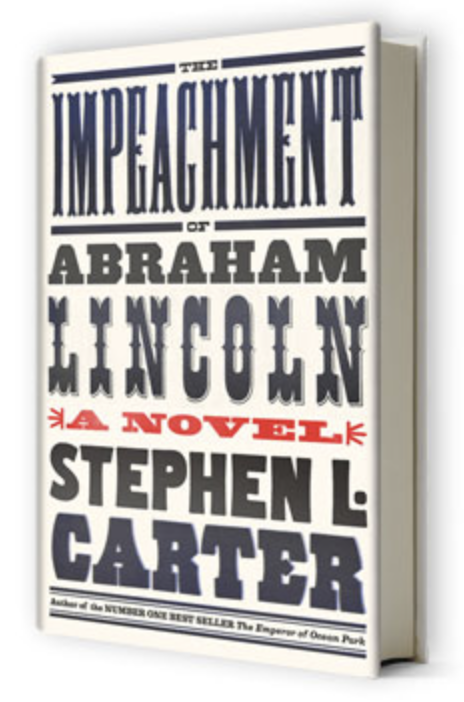BY: JACOB POLITTE
Managing Editor

Stephen L. Carter’s 2012 novel “The Impeachment Of Abraham Lincoln” is likely not a widely known work. It never hit the bestseller lists despite previous novels from Carter achieving that feat, and the Meramec library doesn’t even have a copy of it.
“Impeachment” however, is a bold piece of historical fiction. The novel opens with Lincoln miraculously surviving his assaination attempt at Ford’s Theatre while the assaination attempt at Kirkwood House against his Vice President, Andrew Johnson, succeeds. Two years pass, and history has changed significantly. Lincoln has no Vice President, is a widower, and is facing impeachment proceedings on a variety of grounds. The charges are: suspending habeas corpus, censoring newspapers and seizing private telegrams, failing to protect freedmen, and plotting to overthrow the authority of Congress itself through military means.
Carter, a Yale professor who is currently on leave, is a big fan of Lincoln, and he says that these charges are all based on things that Lincoln actually did or was suspected of doing.
He takes a revered, near perfect character in Lincoln and puts him through the wringer, exposing his fictional and sometimes real world flaws while never really betraying the version that history has taught American citizens for generations.
Lincoln, however, proves to ultimately be a supporting character in a novel bearing his name. He makes significant appearances throughout the novel, and even has quite a bit of dialogue. The novel, however, instead focuses on his legal team, primarily a young, educated black clerk named Abigail Canner.
Canner, despite many involved trying to minimize her role in every way, proves to have many more ties to the case than even she originally thought. Her role grows when one of the lawyers in Lincoln’s inner circle is murdered, and despite pleas from everyone to leave it alone, she pursues the matter on top of her legal duties. What follows is a fascinating story that combines legal drama, crime and history for a fantastic, if bloated, work of fiction.
Admittedly, the level of historical detail may hurt the book in the eyes of some. The impeachment procedures are described in mostly accurate and lengthy detail, but this may not appeal to readers that prefer action over exposition. The dialogue is detailed and accurate for the time period, but there are absolutely points where the “telling, not showing” problem that some novels face comes into play. Some readers may enjoy the first 26 chapters more, which detail the happenings and story twists that occur before the trial officially begins. That being said, there are quite a few twists and turns, and the story does remain engaging throughout the length of the trial.
The trial itself has a shocking ending, which may surprise some readers, although it really shouldn’t, given the context of actual, legitimate history. However, it also makes little sense, and unravels the book’s narrative a bit. It is still exciting, and it brings the book to a satisfying, if muted conclusion.
The book itself contains characters both fictional, and real. It also has a lengthy afterward where Carter makes it clear exactly what liberties he took with history, and how exactly he took real people and real events to make an impressive, daunting work of fiction.
“The Impeachment Of Abraham Lincoln” can be purchased on Amazon, or on iTunes in e-book and audiobook form.











